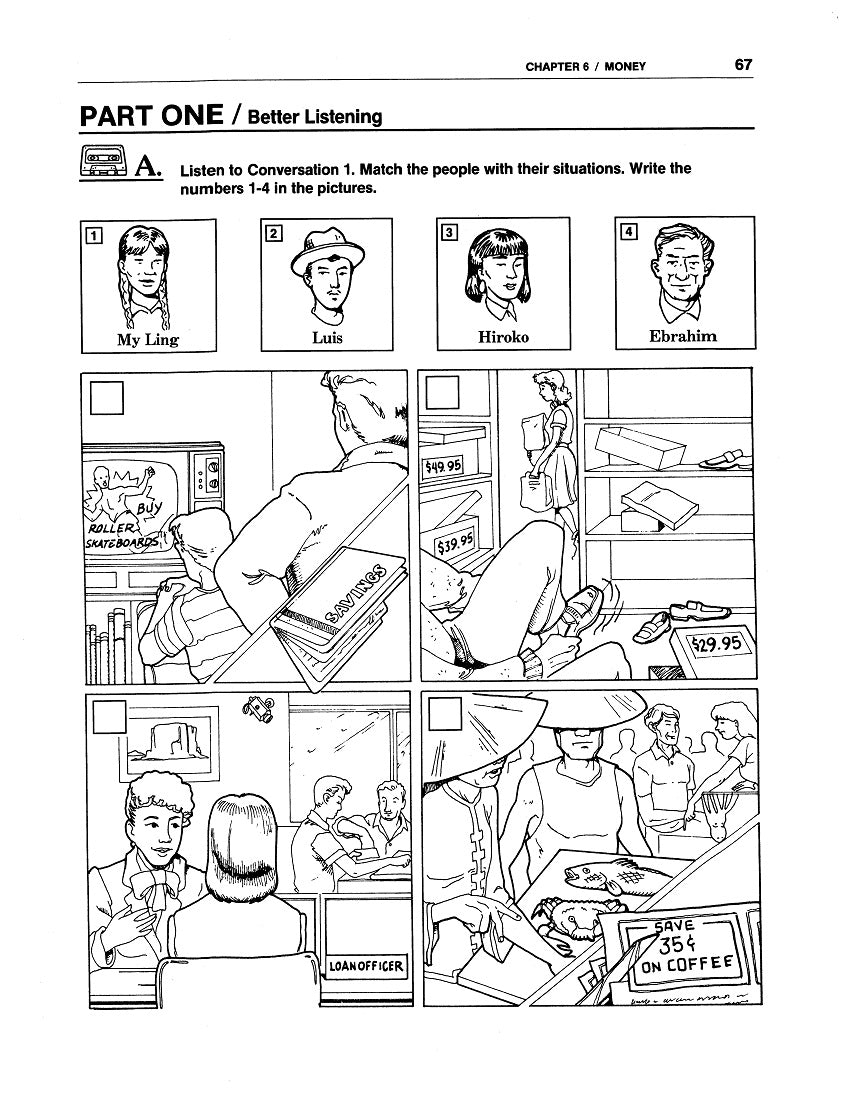1
/
of
1
Work/Life English
E-06.06 Get “in the Money” by “Shopping” for the Best Oral-Skills Improvement Techniques
E-06.06 Get “in the Money” by “Shopping” for the Best Oral-Skills Improvement Techniques
Regular price
$3.00 USD
Regular price
Sale price
$3.00 USD
Unit price
/
per
An Immigration Story
WorkLife English: Competency-Based Listening/Speaking, Book 3; Chapter 6: Money
13 +2 = 15 pages
Who It’s For: (Teachers & Helpers of) (Intermediate & Beyond) Language Learners Ready to Compare Things (While Shopping) by Expressing Opinions & (Dis)Agreeing
Why It’s Useful: No matter which stage they are in their linguistic development, people need to shop for things. And most choices involve comparison, elicited by product features, discounts, commercials, and the like. Uses of (Continuous Verb Tenses &) Comparative & Superlative Adjectives / Adverbs also play a role. At the same time, text users can be evaluating the (dis)advantages of various language-acquisition techniques.
What You’ll Do:
[1] Some Competencies listed in the Chapter 6: Opener are “Comparing Prices & Items,” “Understanding Sales, Commercials, & Such,” “Comparing Kinds of Bank Accounts.” Its Notions & Functions include “Expressing Opinions, Agreeing, & Disagreeing.” Its Grammar in Focus is “The Continuous Tenses” and “Comparatives/Superlatives.”
[2] By Listening Better in Part One, learners hear stories about shopping & money that contain references to markets, trades, quality, price, loans, purchases, and other financial matters. Contractions & Words in Fast Speech include linguistic “gambits” (devices that further conversation) such as “for example,” “Is that right?” “(not) exactly,” or “absolutely”—as well as Contractions or phrasing sometimes confused with other words (like they’re / there / their; we’re / were; use(d) to).
[3] Clear Speech in Part Two spotlights less common Consonants like / h)w, y, kw, ks, gz /—and stressed words in longer verb phrases. As anticipated in Part Three: Good Communication, there are plenty of devices to express opinions, agreement, or opposition on scales ranging from “formal to informal” and “strong to weak.” Sentence patterns for “Comparing (More Than) Two Things” are followed by (illustrated) practice in doing so that reach far “Beyond the Book.” Part Four: Practical Listening tasks continue communication on comparable topics.
[4] As usual, text versions of relevant Audio material are in attached AudioScript pages. For reference or help now or later, an Answer Key for Text Exercises is also available: it’s in Download E-06.11.
Couldn't load pickup availability


